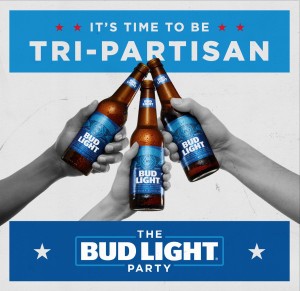Beginning to See the Light: An Interview with Whitney
Whitney. Photo: Sandy Kim
Full disclosure: It is difficult to write about the band Whitney playing in Houston without the pull of naming this article “Whitney, Houston,” but I did my best to fight that urge.
I heard Whitney’s fantastic album Light Upon The Lake earlier this year. I had the album for a week or so, decided one morning to put it on, and a marvelous thing happened. As I began with the beautiful “No Woman,” with each song I became more of a fan of the band, and by the end of the album I had taken the journey from novice to enthusiast. It rarely happens, and I do mean rarely (a similar thing happened with Cate Le Bon’s Crab Day), but Light Upon the Lake was concise and delightful as an album, it deserves all 40 minutes, every single time, it doesn’t feel too long or short, everything happens when it should.
“I think what you were saying about becoming a fan of the band throughout the record, I think a lot of that has to with the record being pretty short and the songs being pretty short as well,” notes drummer and vocalist Julian Ehrlich. “I think it’s pretty hard to get tired of one of these songs, because we just didn’t put filler in them, you know. If anything, the record would be too short and you’d want to listen to it over and over again and that was definitely intentional.”
Light Upon the Lake in pretty much a break up record, but unlike something that is dour and mournful, the record come across pretty bright and tuneful. There’s wistfulness more than sorrow even as the lyrics suggest a more forlorn feeling. I liken it something like “Sweet Baby James;” the catalyst may have been sadness, but the result is somewhat uplifting and hopeful. One cannot hear a song like “Golden Days” and not tap your feet, so even by the time you reach “It’s a shame we can’t together it now,” it invokes a solace, reflection and acceptance rather than woebegone and aching.
“I was going through a very intense break up throughout the writing process, it was really natural to make these songs about the most intense emotions that I was feeling at that time, that’s why all the lyrical content is pretty heavy and dark. The last song we wrote was ‘Light Upon the Lake’ and that was the first line that I came up with for that song. I kind of immediately knew that the album needed like a breather song, like a reflecting song, so that line just like immediately stuck out. The idea that I had for that song was just like the main character or whatever just sitting and reflecting.”
Another strength of the record is its sound, soulful, but the soul of say The Commodores or Maurice White-era Minnie Ripperton, “Fa Fa Fa” Otis Redding, or the Grateful Dead, or pre-Setera Chicago. It evokes images of rides in the back of pick-up trucks, barbecues on the lakes, it is dancing while crying. If one were to take a title as a hint to theme, the light upon the lake, the eventual happiness after drowning in the sadness, the light at the end of the tunnel, the slight to full illumination from darkness.
“When we first started writing, I had always written vocal melodies and stuff. Something that I really tried to bring to this project was like basically more soulful melodies, Smith Westerns [Ehrlich’s former band] was more influenced by like Brit-pop, and I guess I grew up being totally obsessed with Sam Cooke and Marvin Gaye. I think that the only thing that I know how to do is to write melodies that come from the heart and not necessarily perfectly constructed pop melodies. But I would say the same for Max’s guitar playing too, it’s a lot more influenced by ‘Sitting On the Dock of the Bay.’ The guitar playing on that song is fucking intense it goes for the heart, so we were kind of feeding off each other in that way.”
As I mentioned, Whitney will be in town presenting songs from this wonderful work on Sunday at House of Blues‘ Bronze Peacock Room. However, as is sometimes the case, translation is a curiosity, the album is a personal experience, the live show is more visceral. Can this album be pulled off live, is that even the intention?
“Honestly, our goal when we play the songs live is to take the songs further,” Ehrlich notes. “We definitely add quite a bit of energy to them, we play them a little bit faster and I think that actually putting faces to this album is important, too. We are very emotive on stage. One second we’ll be like laughing or smiling at each other while improvising and it’s working, the next moment I’ll be almost tearing up. We were blessed to have the horn player that played all the horns on the record, he’s talented to run all the horns through like a vocal harmonizer and then he plays through a MIDI keyboard an entire horn section like a three-part horn section. In terms of all that, all the sounds are there.”
Whitney made a great album, probably one of the best this year. It is also an album unique to the band and this album stands alone in that way, so it is pertinent that you hear it for that reason. But, as a fan of the album, I’m even that much more psyched to see it live, and you should be, too. If you are going through it — a breakup, a job transition, anger at the closure of 45 on the weekend — this is your chance to get it out or get through it and dance or even just stand there experiencing the communal moment. C’mon everybody, let’s all get down.










